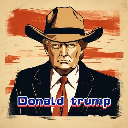 |
|
 |
|
 |
|
 |
|
 |
|
 |
|
 |
|
 |
|
 |
|
 |
|
 |
|
 |
|
 |
|
 |
|
 |
|
Cryptocurrency News Articles
Crypto Market Crash: Understanding the Impact of Tariff Wars
Feb 04, 2025 at 01:08 am
The crypto market is currently experiencing a significant crash, driven by a mix of global economic uncertainties and specific industry challenges.
The crypto market has taken a hit recently, and it seems like the latest dip might have something to do with—you guessed it—tariff wars. Yeah, those pesky international trade disputes are back in the spotlight, and they're making waves in more ways than one. For investors, this isn’t just another headline; it's something that could impact wallets and portfolios big time. Let's dig into what's really going on and what you might need to know if you're dabbling in the world of crypto.
Understanding the Current Crypto Market Crash
The crypto market is currently experiencing a significant crash, driven by a mix of global economic uncertainties and specific industry challenges. Rising inflation, geopolitical tensions, and changing monetary policies are just a few of the external factors that have contributed to this downturn. Within the crypto world, issues like regulatory crackdowns and security breaches have further shaken investor confidence.
Historical Context of Market Crashes
Looking back, the crypto market has seen several crashes, each with its own set of causes and effects. The 2018 crash, for example, was largely due to the bursting of the ICO bubble. In contrast, the 2021 crash was influenced by environmental concerns over mining practices and regulatory fears. Understanding these past events can provide insights into the current situation and help predict future trends.
Impact on Major Cryptocurrencies
Major cryptocurrencies like Bitcoin and Ethereum have been hit hard. Following Trump’s tariff announcement, both Bitcoin and Ethereum experienced a significant drop, leading to over $2.21 billion in liquidations. Bitcoin is now approaching a critical support level at $93.8K, while Ethereum, though affected, remains somewhat resilient. This crash has not only affected prices but also market sentiment, leading to increased volatility and uncertainty among investors.
The Role of Tariff Wars in Economic Instability
How Tariffs Affect Global Trade
When countries start slapping tariffs on each other, it's like a domino effect. One tariff leads to another, and soon you've got a full-blown trade war. Tariffs are essentially taxes on imports, and they can make foreign goods way more expensive. This often pushes consumers to buy local, but it also means higher prices overall. Businesses might pass these costs onto customers or absorb them, cutting into profits. Sometimes, companies shift production to countries with lower tariffs, but that can take a lot of time and money.
Historical Precedents of Tariff-Induced Crashes
History shows us that tariffs can seriously shake things up. Remember the Smoot-Hawley Tariff Act of 1930? It led to a trade war that made the Great Depression even worse. Fast forward to the 2018 trade war, and while the impact wasn't as dramatic, it still rattled markets and raised costs for consumers and businesses.
Current Tariff Policies and Their Implications
Today, tariffs are back in the spotlight. With countries like the U.S. and China playing tit-for-tat, global trade dynamics are shifting. These policies can lead to uncertainty, affecting everything from stock markets to everyday goods. Investors are keeping a close eye on these developments, as they can influence market stability and economic growth. It's a bit like walking a tightrope—one wrong move, and the balance can tip, impacting economies worldwide.
Investor Reactions to Market Volatility
Common Investor Mistakes During Crashes
When markets get shaky, investors often make hasty decisions. One big mistake is panic selling. Watching your portfolio's value drop can be nerve-wracking, but selling in a rush usually locks in losses. Another common blunder is trying to time the market. Predicting the bottom is nearly impossible, and missing even a few days of a rebound can hurt returns. Lastly, neglecting to rebalance portfolios can lead to unwanted risk exposure.
Strategies for Mitigating Losses
To cushion against market swings, diversification is key. Spreading investments across various asset classes can reduce risk. Additionally, maintaining a cash reserve allows investors to take advantage of buying opportunities when prices are low. Another strategy is dollar-cost averaging, which involves investing a fixed amount regularly, regardless of market conditions. This approach can lower the average cost per share over time.
Long-Term vs Short-Term Investment Approaches
Investors often face the dilemma of choosing between long-term and short-term strategies. Long-term investing focuses on holding assets for years, riding out market fluctuations. This approach can benefit from compound growth and reduce the impact of short-term volatility. In contrast, short-term investing involves frequent buying and selling, aiming to capitalize on quick price changes. While it offers flexibility, it requires constant monitoring and can lead to higher transaction costs.
Analyzing the Impact on Global Economies
Effects on Emerging Markets
Emerging markets often bear the brunt of global economic shifts. When tariffs rise, these countries can face increased costs for essential imports. This can lead to
Disclaimer:info@kdj.com
The information provided is not trading advice. kdj.com does not assume any responsibility for any investments made based on the information provided in this article. Cryptocurrencies are highly volatile and it is highly recommended that you invest with caution after thorough research!
If you believe that the content used on this website infringes your copyright, please contact us immediately (info@kdj.com) and we will delete it promptly.
-

- Qardeun Token: The Future of Digital Transactions Starts Here
- Feb 04, 2025 at 05:25 am
- The future of digital transactions is here, and Qardeun Token is at the forefront of this transformation. As global commerce shifts toward decentralized solutions, Qardeun Token emerges as a cutting-edge financial tool designed to eliminate inefficiencies, reduce transaction costs, and empower users with seamless, secure, and borderless payments.
-

-

-

-

-

- The Cryptocurrency Market Heats Up: Dogecoin (DOGE) Set for Surge, Ethereum (ETH) Losing Its Edge, and Web3Bay Transforming E-Commerce Through Blockchain
- Feb 04, 2025 at 05:25 am
- The cryptocurrency market is always active, and 2025 is turning out to be a crucial year for three notable projects: Dogecoin, Ethereum (ETH), and Web3Bay.
-

-

-

- US and Mexico Reach Agreement, Pausing Tariffs for One Month; Crypto Market Rebounds
- Feb 04, 2025 at 05:05 am
- Proposed tariffs between the US and Mexico have been wreaking havoc in the crypto market. US tech stocks were already reeling from DeepSeek, but new tariffs against Mexico, Canada, and China have caused billions in crypto liquidations.





























































